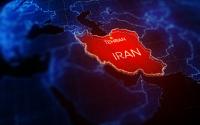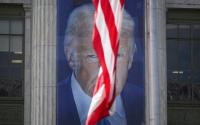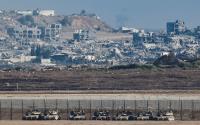11 October 2004Mandisi Majavu
It is reported that the latest increase in oil prices are due to the ongoing conflict in Nigeria . Nigeria is Africa's leading oil producer and is the fifth-largest supplier of oil to the US . It is reported that since the discovery of oil in 1956, Nigeria has made about $400 billion in profits.
However, despite the oil profits, 70 percent of the 130 million Nigerians live on less than a dollar a day. In the Niger Delta, where most of Nigeria 's oil reserves are found, "the rivers have been polluted. The fish in the local rivers used to be one of the main sources of food for the poor. Now that is gone. Agricultural land has also been heavily polluted and can no longer be used to grow food." (Weston: www.marxist.com )
Shell has shipped oil from Nigeria for over 50 years, leaving the Niger Delta underdeveloped and in an environmentally worst condition than it had found it in. And that has been the main source of conflict in the area.
In the past, Nigerians have kidnapped foreign workers employed by oil companies operating in the country as a tactic for more access to the country's oil wealth. Groups of women have taken over oil pumping facilities demanding that the oil companies provide them with jobs and basic amenities. The present threats have forced Shell to close one of its plants.
The rebel Niger Delta People's Volunteer Force announced at the end of September that oil companies must shut down production and withdraw their staff before an "all-out war on the Nigerian State ". The announcement singled out the Royal Dutch Shell Group and Italy 's Agip for collaboration in "acts of genocide against our people". The "all-out war" which was to begin at the beginning of this month (October) was, however, averted by an 11-hour peace negotiation.
A study conducted by Shell, leaked to the media earlier this year, revealed that the violence in Niger Delta kills about 1,000 people a year, putting the area on par with conflicts in Chechnya and Colombia . Simon Buerk, the company's spokesperson, has been quoted as saying the study highlighted how Shell "sometimes feeds conflict by the way we award contracts, gain access to land and deal with community representatives." In September alone, about 500 people died in Port Harcourt , Nigeria 's oil producing capital, according to Amnesty International.
Another factor fuelling the Nigerian conflict is the government's corruption. In his book "In the Shadow of a Saint" Ken Wiwa, the son of the late Nigerian writer Ken Saro Wiwa, reveals that despite earning an annual average income of $30 billion from oil from 1990 to 2000, Nigeria somehow managed to amass an external debt of $40 billion without much capital investment or infra-structure to show for it. Nigeria is Africa 's largest oil exporter, with oil revenues expected to reach $27 billion this year, yet a large majority of people live below poverty line. Life expectancy barely tops 50 years, according to reports.
Nigerian oil is produced by Shell, ExxonMobil, Total, Chevron Texaco and Agip. Shell is the largest oil producer in the Opec member nation. Opec, in turn, holds about two-thirds of the world's oil reserves. These companies have made huge profits out of Nigeria 's oil at a cost of human exploitation and air pollution.
In some cases, these companies have been accused of negligence. Oil pipeline bursts have claimed thousands of lives in Nigeria . In the past four years, it is believed that more than 2,000 people have died due to pipeline bursts that result into fires. The worst incident occurred in 1998 when over 1,200 people died in a massive conflagration in the Niger Delta.
Activists, like the late Ken Saro Wiwa, have been compelled to speak out against such transgression. In 1990 Ken Saro Wiwa founded the Movement for the Survival of the Ogoni People "to protest against the devastation of their environment by Shell." Sadly, five years later, he was hanged by the state on trumped-up charges.
The present rebellion (Niger Delta People's Volunteer Force) is armed and is headed by Mujahid Dokubo-Asari. The "all-out war" that the People's Volunteer Force was planning against the Nigerian State at the beginning of this month was averted because President Olusegun Obasanjo agreed to meet with rebel leaders. Asari claims to command 2,000 men, and insists that the rebellion is to control the oil reserves of the Ijaw people. " Nigeria is a fraudulent creation?the oil companies are evil collaborators," he has been quoted as saying.
Asari claims that the People's Volunteer Force has backing from the Ijaw people -- Nigeria 's fourth largest ethnic group. He says that the reason they have support of the local people is because "we steal oil from the pipelines, refine it ourselves, and sell it at a discount price to the local people."
As things stand, the rebel groups are a real threat to oil markets. If they were to carry out their threats, that would mean a stoppage to an oil machine that pumps between 2. 25 million and 2.5 million barrels per day (bpd) of the world's production ? which amounts to about 81 million bpd.






